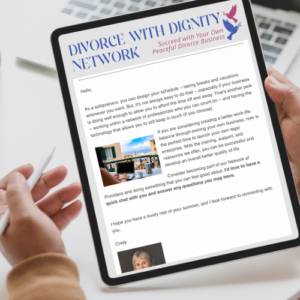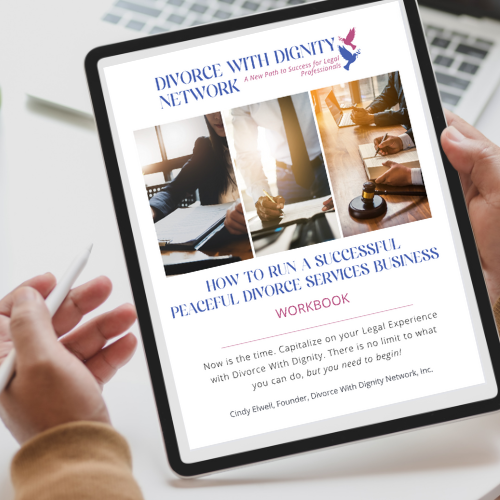In wrapping up this year and preparing to file 2020 tax documents, there will likely be some pain points and possibly even harsh realities for some business owners and managers who haven’t employed a trusty bookkeeper or an accounting system. It may mean owing more than you thought and scrambling to identify more deductions, or it may be that you’re digging for old receipts or statements at the last minute, trying to remember what you purchased for your business in 2020 (a very fuzzy year for many), or realizing that you never secured W9s for contractors — all quite daunting tasks to resolve in time for the upcoming 2021 deadlines (February 1st for 1099s and W2s and April 15th for tax filings). So, here’s your opportunity to assess your current practices and get yourself set-up for success in the coming year.
We had the pleasure of having an accounting-degreed bookkeeper, with over 12 years experience in the business, who has worked with businesses of varying sizes and models, join our monthly Provider Call to offer guidance and best practices to our team of Providers, and now we’re passing that on to you. Rochelle Knight of Marathon Solutions Group shared what are, in her experience, the key things that small businesses (specifically legal services businesses) should be doing to both wrap up this year and prepare for the next.
If you’re one of the many who try to pull together 365 days worth of receipts, income, credit card expenses, personally covered expenses, and statements into the two weeks before your accountant needs them, you’re definitely not alone. But why do we do this to ourselves? For some, it’s simply that after tax time, bookkeeping falls off the radar and certainly to the bottom of the priority list. For others, the thought of finding a system, getting it set-up, learning how to use it, and then actually managing it regularly is just too overwhelming, and the squeaky wheel of the day always wins over this daunting project.
Some business owners have already learned this the hard way: “you’re losing money if you don’t have some type of system.” That’s from Rochelle. She knows what she’s talking about because she has worked with more than one client who has received their tax numbers and were left completely frozen in disbelief and then scrambling to identify more expenses to reduce their amount owed and more money to cover what’s now due. Surprise! It’s really not a great way to start a new year, with an unexpected tax payment, because you actually made more than you thought and/or missed deducting some critical expenses.
It’s hard to believe that you’ll forget when you bought that computer, or that you clicked to “subscribe” to those little tools that make your business run so much more smoothly — but you likely will — and they will definitely add up. After the stress that comes with tax time subsides, you may remember these items (just after your taxes have been filed probably), but then you face the decision as to whether it’s worth it to pay more to have your tax filing amended. Check-in: How much time have you spent on this now, instead of generating revenue for your business?
What may be worse, is realizing at the end of the year that you actually paid out a fair amount for something unintentionally (that little pesky subscription), or that a legitimate expense added up in a way you surely didn’t anticipate. Rochelle shared that the first time she generates a financial report for her clients, they’re often completely shocked to see how much money they’re actually spending. For those only seeing these numbers at year’s end, it’s too late to slow or stop the bleed. So, having the system and the practice to review your income and expenses regularly, can really spare you (most of) the unpleasant surprises at tax time.
So, this year, we learned some lessons and we’re ready to move forward, more proactively, and with more information. No blame. No beating yourself up. Just action.
On that note, here are some of the key items Rochelle highlighted for small business owners to consider when preparing for filing 2020 taxes:
- Connect with your tax professional and bookkeeper now. Check-in to see what they’ll need and when they’ll need it. Most tax preparers require documents and information well before the filing deadline.
- If you have employees on payroll, be sure to work with your payroll service to make any necessary adjustments before January (again, W2s are due February 1st, 2021).
- Make sure you have secured a W9 for each of your independent contractors, freelancers, etc. who requires one (if you have any) — and be sure to get their email addresses, as this makes the 1099 distribution process significantly easier (again, 1099s are due February 1st, 2021).
- Pull all of your bank and credit card statements and receipts together for your accountant. This can be a very time-consuming process, depending on what you’ve set up, so start early.
- If you received funding through the COVID-19 Paycheck Protection Program (PPP), be sure you’ve checked with your lender on the status of your COVID-19 PPP Loan Forgiveness application. Here’s more information on that.
- Finally, as many folks moved to working from home (at least part of the time) in 2020, look into whether you qualify for any home-based business deductions (your tax pro should be able to let you know what/how much qualifies, if any).
Now, to prepare for the coming year, Rochelle suggests the following:
- Secure a bookkeeping tool — even if it’s just an Excel spreadsheet — just have something in place.
- Consult with a professional to start the new year clean and organized (more about this below). Maybe you realized that things weren’t managed as accurately as they could have been this year, maybe the numbers aren’t reconciling at all, or it’s just too overwhelming to figure out how to do it all. A pro can get you set up, trained, and on the right track to start fresh and in good form.
- Now that you’re set up, review and categorize your expenses regularly and while they’re fresh in your mind (at least weekly).
- Consider running monthly reports to stay abreast of income and expenses. You may be surprised to see where your money is going (and how much). By reviewing these reports regularly, you can address any bleeds before it’s too late.
- Keep your business and personal accounts separate. Consider opening bank accounts and credit cards solely for business use. When income and expenses are co-mingled, it can create missed expenses and extra time (and $$) spent trying to sort out the legitimate business items.
- And finally, with things constantly changing and happening rapidly, it’s a good idea to keep your books current at all times, so that reporting can be provided on short notice. For example, the COVID-19 PPP was a first-come, first-served basis, and many missed it, because they were delayed trying to pull their reporting together. If there’s another round, or should something else arise, it’s a good idea to be prepared.
A few other helpful tips from Rochelle:
- Ask your payroll provider about making or importing payroll entries directly in your system (this should be included in your payroll package). The only thing you should need to do is to categorize the associated bank fee.
- Designate just about 5-15 minutes per day to categorize your transactions in your bookkeeping system; it’s much easier when items are fresh in your mind, and this practice will keep you in-the-know and current.
Rochelle’s key message came through loud and clear:
At the end of the day, if you want to be a successful business owner, you have to know your numbers. To know your numbers, you have to have some sort of system to track your numbers.
With so many choices with simple to complex functionality and priced from free to a few hundred per month, it can be tough to identify the right tool and make sure it will fit your needs and your budget. (Here are just a few.) So, Rochelle suggests that you employ an experienced bookkeeper to at least help you to identify the right tool for your business and your budget and get you set-up and trained on how to use it. Further, you can start the relationship and keep their number handy for when questions or problems arise — and this upfront expense may be well worth the investment, as it will likely save you money when it comes to filing.
When choosing a bookkeeper, you also have many choices — from a very inexpensive resource located overseas, a local affordable resource, to a more expensive accounting firm. The most beneficial thing you can do for all parties involved, no matter which level you choose, is to establish clear expectations, deliverables, and bookkeeping budget. Bookkeepers can be paid hourly, on retainer, or by a flat fee — so set your budget and find the right person for the job who can stay within that budget — whatever it is. (Online tools such as Fiverr and Yelp and direct referrals from trusted sources are great ways to find the right person to fit your specific needs and budget.)
With that, we hope that you feel better prepared this year and more profitable in the next, because you’ve taken the steps to ensure that you know your numbers!
***

Rochelle can be reached through her website. She also has a wonderful and informative podcast called “DIY Bookkeeping 101,” which can be found on most podcast sites, as well as here, on YouTube.
***
This informational training is just one of the many resources we offer to our Divorce With Dignity Providers. If you’re interested in learning more about the benefits we offer our Providers, please schedule your free consultation here.
I hope this information was helpful and useful to you. If you have any questions about the information presented in this article, please contact your tax professional or Rochelle Knight, via her website listed above.
***
The author of this blog is not an attorney or accountant and the information contained in these blogs should not be considered legal or accounting advice. Please do not hesitate to seek the advice of an attorney and/or accountant if you have any legal or accounting questions.





